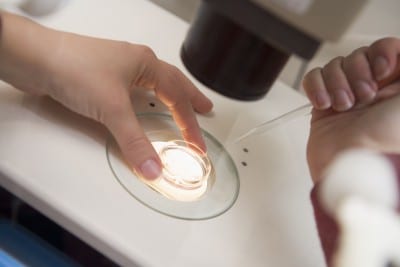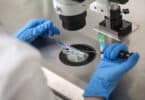For many couples, infertility can be a struggle. As prospective parents, we will try anything to have a child. A new study is suggesting, however that a specific fertility treatment may lower the sperm count of the future children.
Intracytoplasmic sperm injection (ICSI), is a type of assisted reproductive technology where part of in-vitro fertilization. Sperm is collected from the father and injected into the middle part of the mother’s egg. This is to induce normal fertilization. The fertilized egg is then transferred into the mother’s womb.
ICSI is primarily used to treat infertility in males. For instance, men who have a low sperm count or abnormal sperm function. During ICSI doctors select only the best quality sperm and inject it into the egg for optimum chances of fertilization. Prof. André Van Steirteghemat and colleagues – from the Centre for Reproductive Medicine at the Vrije Universiteit Brussel (VUB) in Belgium pioneered this technology over 20 years ago, in 1992.
But a recent study, co-authored by Steirteghemat and colleagues, found that children conceived from this type of in-vitro fertilization may inherit their father’s infertility problems. Published in the journal Human Reproduction, Steirteghemat notes many of male infertility problems are genetic, or caused by genetic defects. This was merely speculation until this study came about.
It appears, Steirteghemat was on the mark. He and his colleagues analyzed 54 men born through ICSI between the years 1992-1996, during a time when ICSI was solely used for male infertility. They found an association between this procedure and poor sperm quality and count. The 54 men included in the study, all between the ages of 18-22 were matched with a group of control men who had been conceived naturally.
Of those men conceived through ICSI, approximately 50 of them had fathers that had male-factor infertility. As for the remaining four men, the cause of their infertility is still unknown. All of the men were asked to provide semen samples, which were tested for sperm quality and quantity. Blood work was also done. The results revealed that the men conceived through ICSI had nearly half the total sperm count of men that were conceived naturally.
Prof. Van Steirteghemat and colleagues say their results suggest men conceived through ICSI may have poorer sperm quality and quantity, increasing their likelihood of fertility problems.
“These findings are not unexpected,” notes Prof. Van Steirteghemat. “Before ICSI was carried out, prospective parents were informed that it may well be that their sons may have impaired sperm and semen like their fathers. For all the parents, this information was not a reason to abstain from ICSI because, as they said: ‘if this happens ICSI can then also be a solution for our sons.'”







